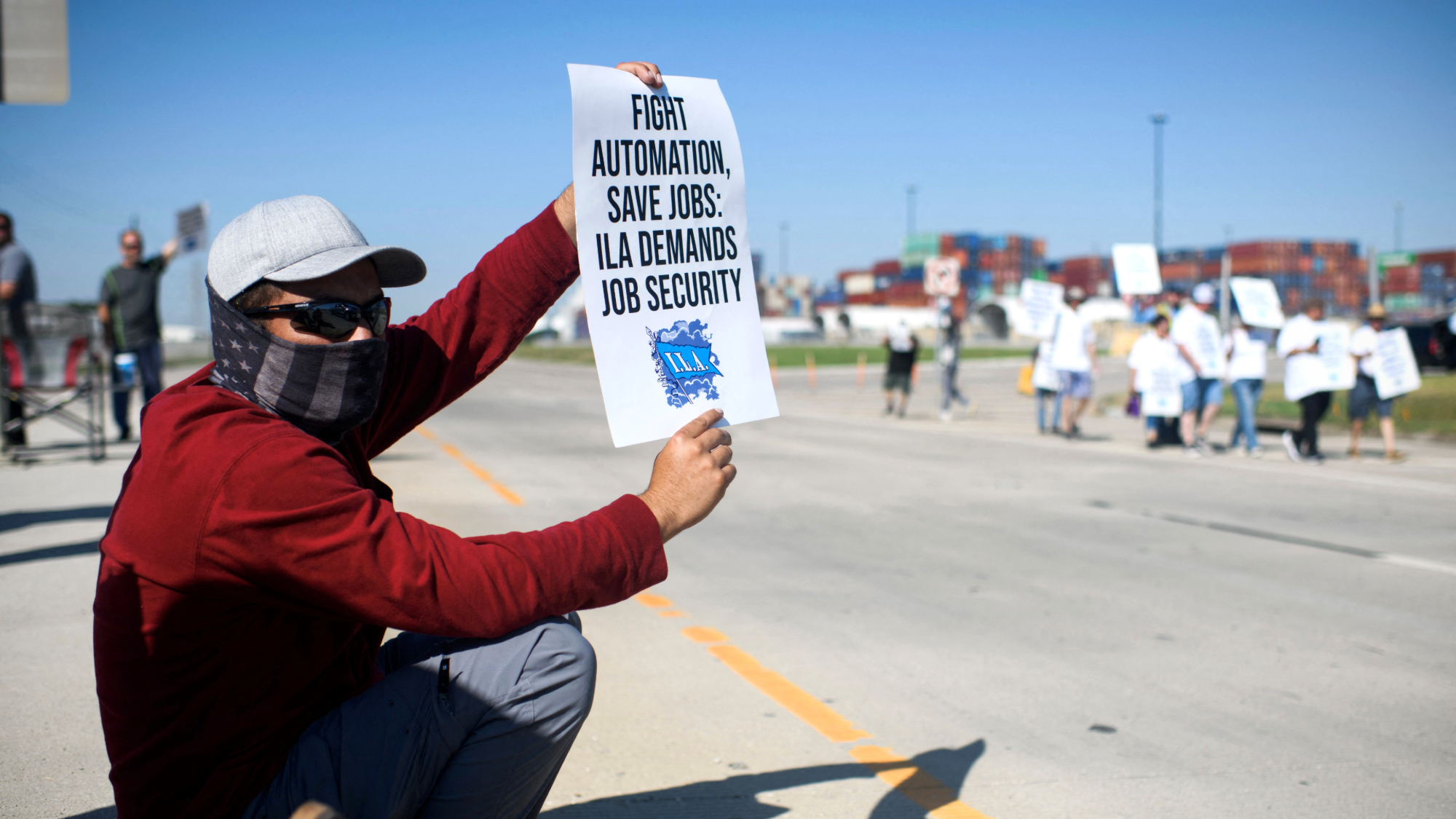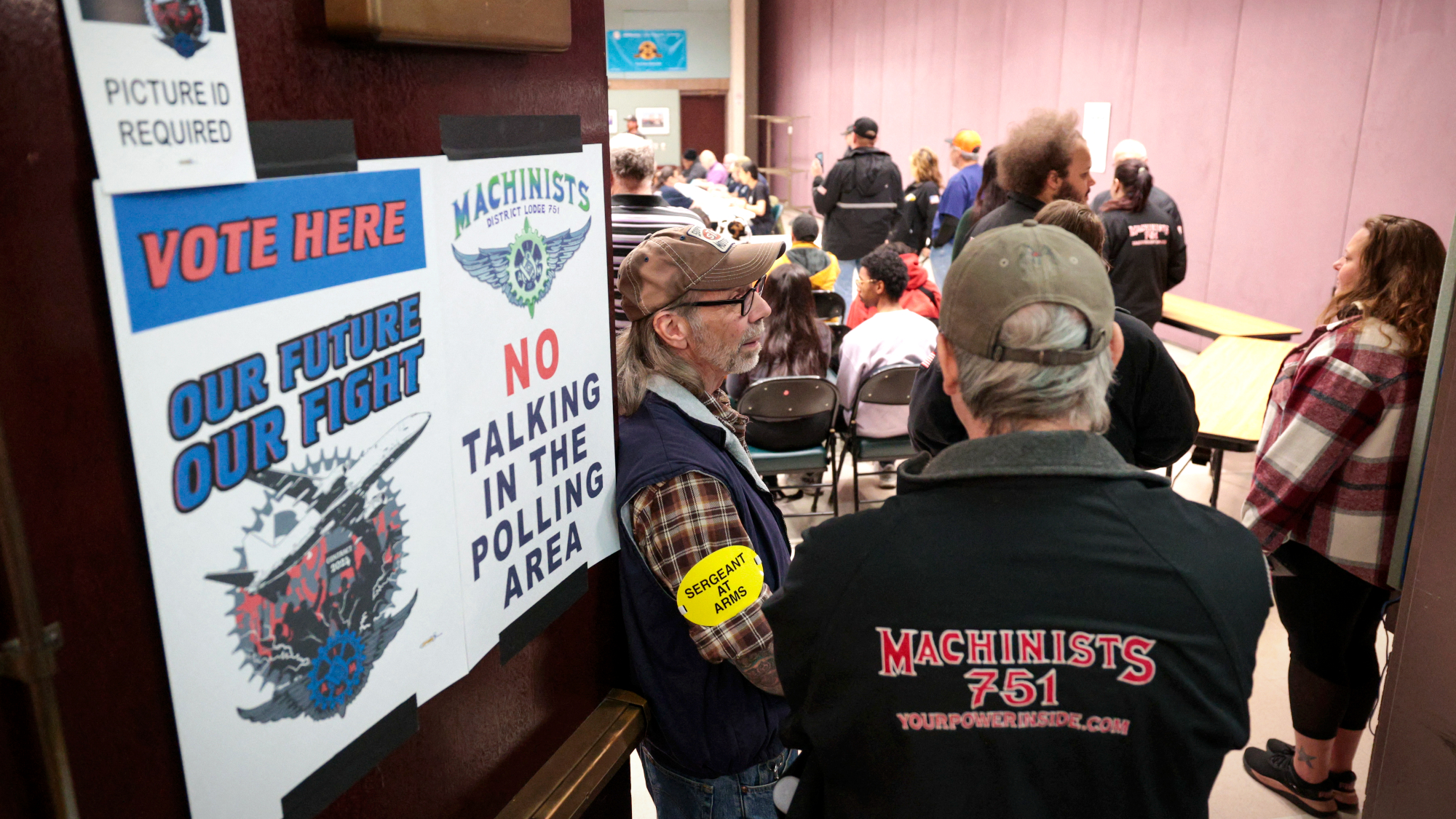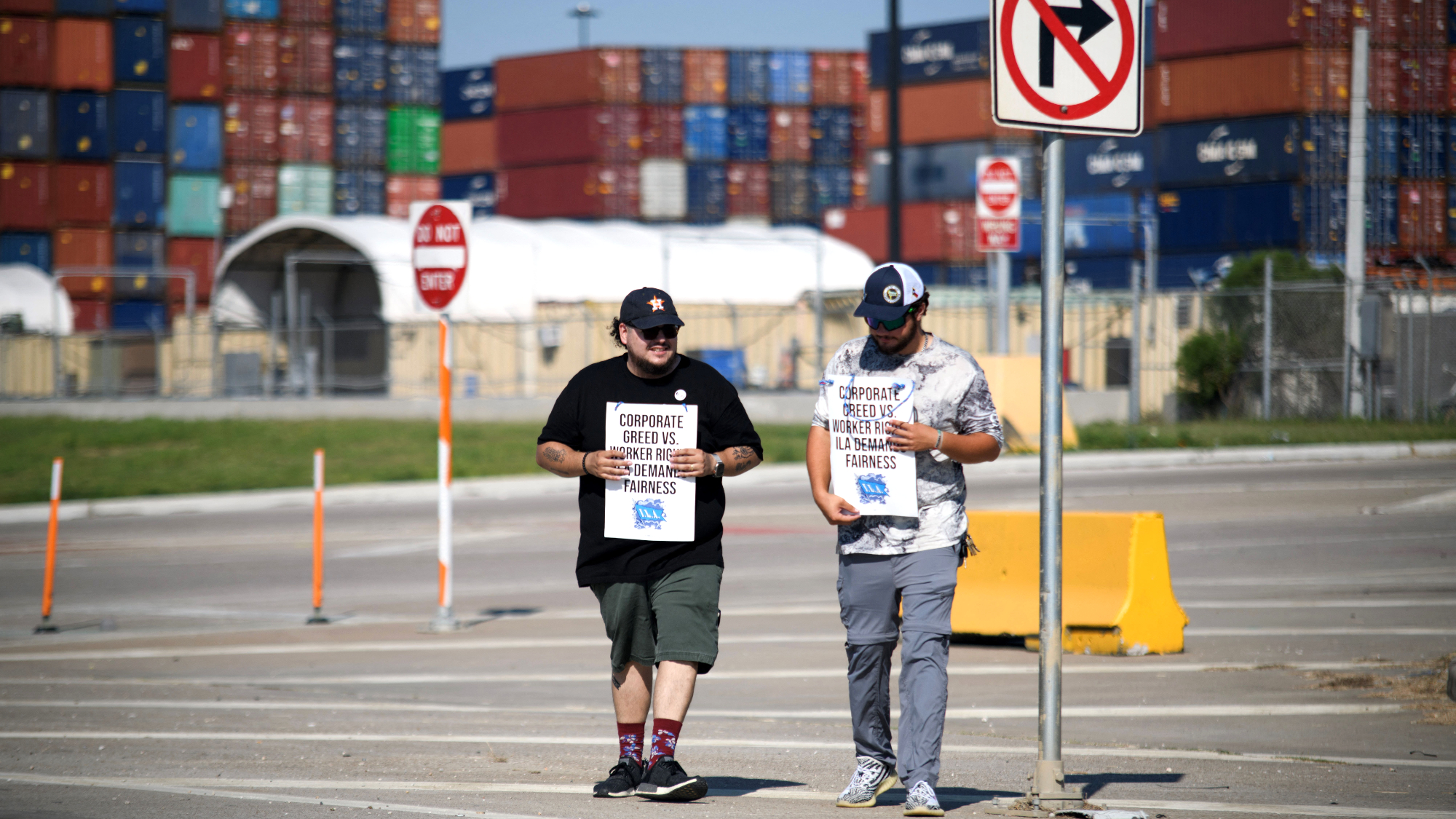Which public sector workers are striking – and when?
Teachers and rail workers taking part in major public sector walkout tomorrow

A free daily email with the biggest news stories of the day – and the best features from TheWeek.com
You are now subscribed
Your newsletter sign-up was successful
The UK is bracing itself for the largest coordinated public sector strike in years on Wednesday as teachers, rail workers and civil servants walk out over pay and conditions disputes.
“Coordination between unions in their battles against under-inflation pay settlements is becoming evident,” said Personnel Today. Wednesday 1 February has emerged “as a prime target”, with unions timing their strikes to coincide with the Trades Union Congress (TUC) national “protect the right to strike” action, protesting against the government’s anti-strike legislation.
Industrial action has “only increased in frequency and spread across more parts of the public sector” since the so-called Strikes Bill was announced, said Politico’s London Playbook. After the bill passed through the Commons unamended last night, Business Secretary Grant Shapps told Playbook that while the ability to strike was “rightly protected by law... people don’t choose when they need an ambulance or the fire brigade”. He added: “We need to maintain a reasonable balance between the ability of workers to strike with the rights and safety of the British public.”
The Week
Escape your echo chamber. Get the facts behind the news, plus analysis from multiple perspectives.

Sign up for The Week's Free Newsletters
From our morning news briefing to a weekly Good News Newsletter, get the best of The Week delivered directly to your inbox.
From our morning news briefing to a weekly Good News Newsletter, get the best of The Week delivered directly to your inbox.
But as it stands, the new legislation would allow employers to give a “work notice” that would identify people required to continue work during strike dates – and workers could be fired if they fail to comply. Writing for the London School of Economics Politics and Policy blog, employment law specialist Ewan McGaughey said the bill amounts to “forced labour” and is “a gross violation of international law”. Paul Nowak, the new general secretary of the TUC, called it “undemocratic, unworkable and almost certainly illegal” and said “it will likely poison industrial relations and exacerbate disputes, rather than help resolve them”.
As disputes continue, here’s a rundown of which workers are striking tomorrow and in the coming weeks.
Medical staff
Members of the Royal College of Nursing in England are not due to walk out this week although further action has been announced on 6 and 7 February. Ambulance staff in England and Wales are also taking part in industrial action on 6 and 20 February, with as many as 4,200 NHS physiotherapy staff in England due to strike on 9 February. GP practices will continue to operate as normal.
It comes after new figures from the British Medical Association (BMA) revealed strike action by nurses and ambulance staff in January forced hospitals in England to cancel 88,000 appointments.
A free daily email with the biggest news stories of the day – and the best features from TheWeek.com
Junior doctors are also being balloted by the BMA, and will walk out for 72 hours in March if the majority of union members vote to strike with at least a 50% turnout.
Members of the Royal College of Midwives in Wales backed strike action in December; dates are yet to be announced.
Rail and transport workers
Train drivers who are members of the National Union of Rail, Maritime and Transport Workers (RMT) and the Aslef union will strike on 1 and 3 February, with more strike dates next month to be announced.
Around 1,900 Unite members working on Abellio bus services in south and west London are also striking on 1, 2 and 3 February. Transport for London has warned that there is likely to be disruption across the capital on those dates.
Education
Wednesday marks the first day of action by the National Education Union, which represents almost half the teaching workforce. The NEU membership has voted to stage seven days of walkouts in England and Wales. The national strikes will take place on 1 February and 15 and 16 March, with regional dates also scheduled:
- 14 February: Wales
- 28 February: Northern, North West, and Yorkshire & the Humber regions of England
- 1 March: the East Midlands, West Midlands and Eastern regions
- 2 March: London, South East and South West region
The action will affect the “vast majority of schools in England and Wales”, said the Financial Times, “with the NAHT headteachers’ union warning that many would close their doors rather than compromise pupils’ safety”.
Teachers who are members of the Educational Institute Scotland are due to continue their on/off three week walkout until 6 February.
University and College Union members are also due to take 18 days of industrial action in February and March, starting with a staff walkout on Wednesday 1 February. It is estimated that more than 70,000 staff at 150 universities across the UK will walk out in disputes over pay, conditions and pensions. University staff are also taking action over “the casualisation of employment contracts” and pensions, said Personnel Today.
A full list of university strike dates is 1, 9, 10, 14, 15, 16, 21, 22, 23, 27 and 28 February, and 1, 2, 16, 17, 20, 21 and 22 March.
Civil servants
Around 100,000 civil servants are expected to strike on 1 February, “in a major escalation” of pay and working condition disputes, said The Mirror.
Members of the Public and Commercial Service Union at 124 government departments are likely to walk out, “disrupting airports and public services including benefits, passports and driving licences”.
Firefighters
The Fire Brigades Union (FBU) voted overwhelming for strike action in a ballot that closed on Monday. The union said while it had a mandate to take its members out on strike, it would not announce any dates until after it met employers – scheduled for 8 February – where the FBU said it hoped to receive a revised pay offer.
The BBC said the earliest likely date for any action would be 23 February, and if it went ahead it would be the first nationwide walkout over pay in 20 years.
Postal Workers
There are currently no strike dates announced for postal workers. However, the dispute between Royal Mail and the Communication Workers Union “shows little sign of reaching a conclusion, meaning further action is likely at this stage”, said the i news site.
Julia O'Driscoll is the engagement editor. She covers UK and world news, as well as writing lifestyle and travel features. She regularly appears on “The Week Unwrapped” podcast, and hosted The Week's short-form documentary podcast, “The Overview”. Julia was previously the content and social media editor at sustainability consultancy Eco-Age, where she interviewed prominent voices in sustainable fashion and climate movements. She has a master's in liberal arts from Bristol University, and spent a year studying at Charles University in Prague.
-
 Health insurance: Premiums soar as ACA subsidies end
Health insurance: Premiums soar as ACA subsidies endFeature 1.4 million people have dropped coverage
-
 Anthropic: AI triggers the ‘SaaSpocalypse’
Anthropic: AI triggers the ‘SaaSpocalypse’Feature A grim reaper for software services?
-
 NIH director Bhattacharya tapped as acting CDC head
NIH director Bhattacharya tapped as acting CDC headSpeed Read Jay Bhattacharya, a critic of the CDC’s Covid-19 response, will now lead the Centers for Disease Control and Prevention
-
 Ski town strikers fight rising cost of living
Ski town strikers fight rising cost of livingThe Explainer Telluride is the latest ski resort experiencing a patroller strike
-
 A potential railway megamerger raises monopoly questions
A potential railway megamerger raises monopoly questionsThe Explainer Union Pacific and Norfolk Southern would create the country's largest railway operator
-
 Starbucks baristas strike over dress code
Starbucks baristas strike over dress codespeed read The new uniform 'puts the burden on baristas' to buy new clothes, said a Starbucks Workers United union delegate
-
 US port strike averted with tentative labor deal
US port strike averted with tentative labor dealSpeed Read The strike could have shut down major ports from Texas to Maine
-
 Boeing machinists approve contract, end strike
Boeing machinists approve contract, end strikeSpeed Read The company's largest union approved the new contract offer, ending a seven-week strike
-
 Boeing machinists reject deal, continue strike
Boeing machinists reject deal, continue strikeSpeed Read The rejection came the same day Boeing reported a $6.2 billion quarterly loss
-
 Ports reopen after dockworkers halt strike
Ports reopen after dockworkers halt strikeSpeed Read The 36 ports that closed this week, from Maine to Texas, will start reopening today
-
 Dockworkers strike, shutting eastern ports
Dockworkers strike, shutting eastern portsSpeed Read Approximately 50,000 ILA union longshoremen went on strike after failing to reach an agreement on a new contract with maritime companies